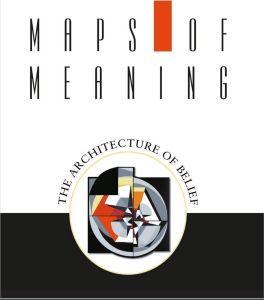Acesse a sua conta getAbstract para obter o resumo!

Acesse a sua conta getAbstract para obter o resumo!
Jordan B. Peterson
Maps of Meaning
The Architecture of Belief
Routledge, 1999
Sobre o que é?
Jordan Peterson interprets myth, religion, history, philosophy and philosophers as only he can.
Recommendation
This ambitious, 500-plus page philosophical work frequently reaches rare heights of brilliance, even though it’s incredibly challenging to read. Since its 1999 release, author Jordan Peterson, who also wrote the bestseller 12 Rules for Life, has gone on to garner both controversy and acclaim. Here, he interprets myth, religion, history and philosophy as only he can. Ultimately, Peterson’s conclusions about the purpose of life and the responsibility of each adult to pursue that purpose, prove uplifting – even optimistic.
Summary
About the Author
University of Toronto professor and clinical psychologist Jordan B. Peterson, PhD, is also the author of 12 Rules for Life.



















Comment on this summary